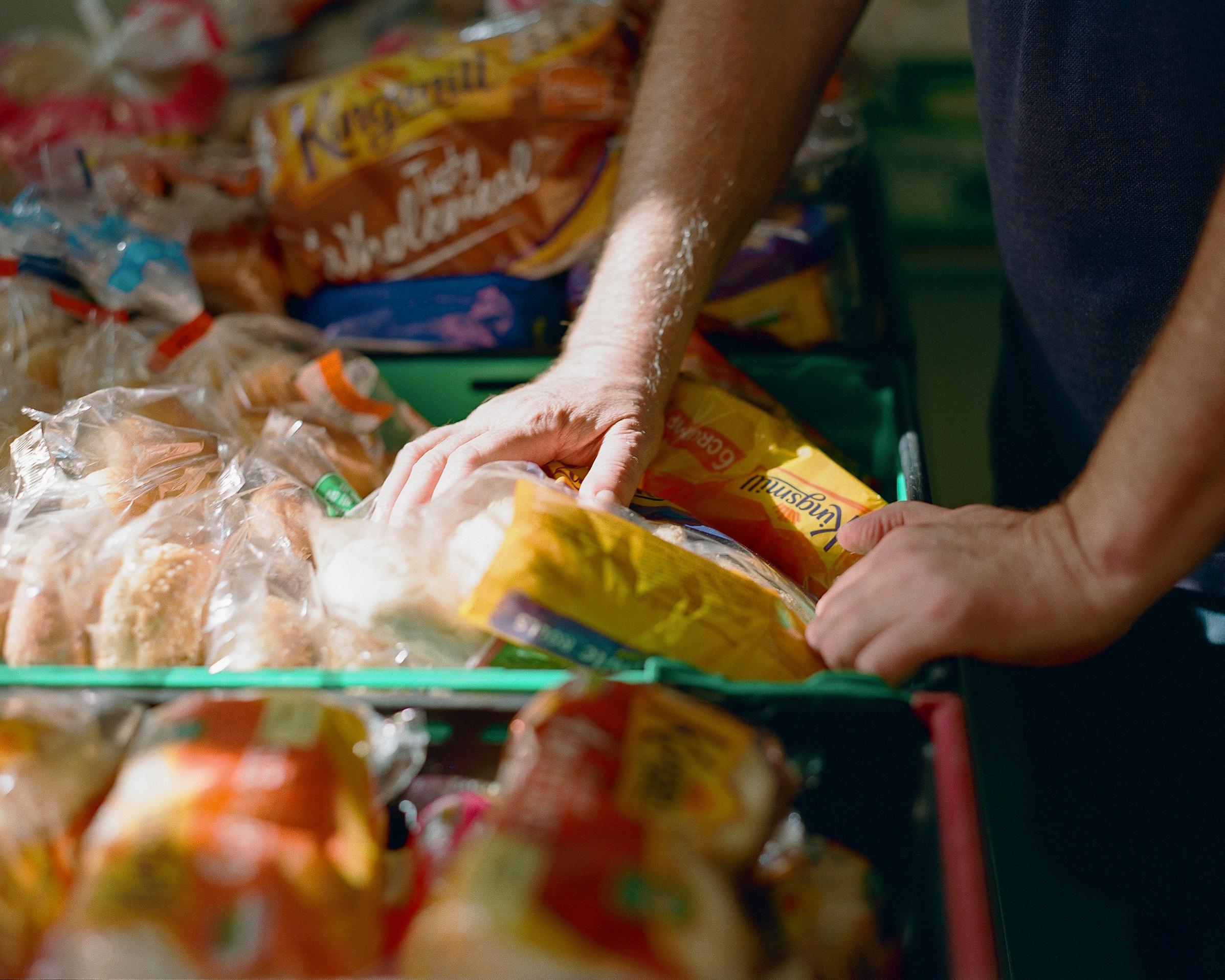An income safety net
Reforming social security, supporting more people into good jobs, and helping people afford housing will shift the dial on deepening poverty. But crucial for protecting from hardship, the foundation to get on, are networks of friendship and help in communities and neighbourhoods, and the local services people rely on.
Protecting people in hard times, helping them back on their feet
A fundamental part of designing out hardship and destitution is people having enough money to afford life’s essentials. But currently, the systems which are meant to ensure this income security for people are failing in many instances.
Our social security system should provide an income safety net for people – topping up incomes when people are low paid, supporting them when they are not working, helping meet additional costs such as those brought about by disability and ill health, and helping people through moments of change in their lives. Crucially it should work hand in hand with support to help people get back on their feet, be easily accessible and clearly signposted, and treat people with dignity and respect. We should all know where and who we can turn to for help and feel confident in seeking it.
But too often, the systems there to support people are inadequate or treat people poorly, rather than enabling people to feel secure and thrive.
Reforming social security
Designing out destitution and hardship in the UK is possible, and our social security system can make a major contribution to this goal. In this series of short briefings, we set out a range of practical options which government can introduce to help ensure the UK’s social security system protects people.
A genuine income safety net for people across the UK must include:
- Introducing a new Essentials Guarantee
- Addressing the sharpest edges of the system that drive hardship, including: the five-week wait for Universal Credit (UC), the two-child limit, unaffordable debt deductions from benefits, and sanctions
- Creating a disability benefits system which genuinely supports people
- Ensuring people get the support they are entitled to.
It must also prevent homelessness, help people with housing costs, and provide crisis and emergency support.
An adequate social security system
Our social security system is currently failing to protect people from destitution, and in too many cases even pushing people into it with caps, limits, deductions and sanctions. Some 7 in 10 people who experienced destitution in 2022 were in receipt of benefits, yet they were still exposed to this most severe form of hardship. Evidence from the Trussell Trust (2021) shows that inadequate benefit support is the main driver of the record number of people needing to use food banks.
We need a commitment to build adequacy into each element of our social security system, to guarantee that our income safety net is an effective one, based on a genuine assessment of need.
People’ lives can change in the blink of an eye – you can lose your job, get sick or need to care for a loved one. Our social security system should be an anchor in these hard times, making sure people can at the very least afford the essentials while they are helped to get back on their feet. The experience should not be one of destitution and hardship.
Treating people with dignity and respect
Reforming the culture of our social security system will also be essential. Across key elements of our current system – disability benefits, sanctions and conditionality, debt deductions – people report the same problems: not being believed, not being treated with empathy, not being given the information they need to understand the system.
The stigma that surrounds our social security system can make people unwilling to seek help. It forces people to feel shame and unwillingness about relying on a system which should be there for all of us when we need it. You can read more about JRF’s work on stigma.
To have a system that protects everyone from deep poverty, we need to build a culture which:
- Prioritises genuine support and engagement – understanding what people need and want from the system, and tailoring support to people’s circumstances.
- Treats people with dignity and respect.
- Builds trust and believes people in the first instance.
- Listens to people with experience of the system and works with people to develop and improve it.
- Works to tackle the stigma surrounding the system and promote social security as a key service that we all have a right to rely on.
How we can build an income safety net
Read our briefings below to see how a system that protects people when they fall on hard times, offers help, support and dignity, is something that should and can be there for all of us.
Downloads
References
Fitzpatrick, S. Bramley, G. Treanor, M. Blenkinsopp, J. McIntyre, J. Johnsen, S. and McMordie, L. (2023) Destitution in the UK 2023. Joseph Rowntree Foundation. Available at: https://www.jrf.org.uk/report/destitution-uk-2023
Trussell Trust (2021) State of Hunger (Year 2 main report) Available at: https://www.trusselltrust.org/state-of-hunger/ (trusselltrust.org) [Accessed: 17 October 2023].

This briefing is part of the deep poverty and destitution topic.
Find out more about our work in this area.

